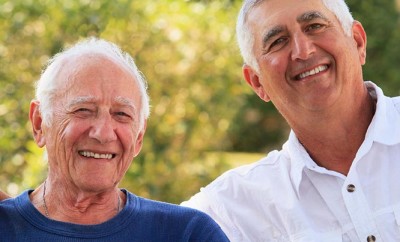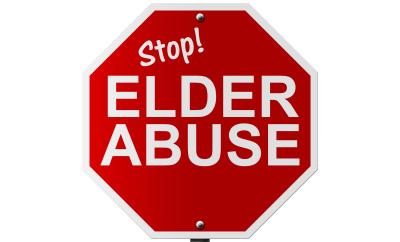
When a Parent Dies
When a parent dies
By John Ballew
Facing the death of a parent is tough at any age. Even if your mother or father is elderly and you’ve been expecting the end to come, when death happens it feels like a shock. After all, your parents have always been a constant in your life, part of our emotional safety net and a source, however imperfect, of love and support. When your parents are gone, you’re truly on your own – and reminded of your own mortality.
For gay men and women, relationships with family can be complicated. How does that affect what happens when we lose a parent?
The myth about families is that when adversity comes along, the family bond strengthens, family members pull together and love prevails. The truth is often more difficult.
If your relationship with your parents has been complicated and ambivalent, you may find that your feelings of sadness and grief are more complex, too. If your parent hasn’t fully appreciated you as a gay man, part of grieving means acknowledging that you are not going to get everything you need from Mom or Dad in this lifetime. That can be an additional source of heartache that catches us off guard.
Grief can make even healthy families crazy. Because feelings are particularly close to the surface at a time like this, you may find your emotional buttons pushed more easily than usual. The most upsetting arguments often happen when the family is in pain and your sister seems even whinier than you remember, your brother more insensitive and boorish. Before you know it, you’re going postal, ready to scream or rip someone’s head off.
Because so many of us moved away from home when we come out and establish our own adult identities, traveling back to the old family place may mean we’re suddenly at some distance from friends and loved ones – our family of choice. We’re removed from our sources of support, the comfort of routine and all the ways we usually cope.
How best to cope with the grief and emotional stress that happens when a parent dies? First, take good care of yourself. This is a good time to use up the rollover minutes on your cell phone staying in touch with friends. The conversations don’t always need to be long or deep; sometimes it’s enough just to be reminded that life back home continues and that your friends love you and are thinking of you.
Let yourself feel whatever comes up. You may find yourself on an emotional roller coaster, feeling grief and sadness one moment, anger or relief the next.
Remember that you’re an adult now and have choices to make about how you want to go through this experience. If your family expects you to behave in ways that leave you feeling uncomfortable, disrespected or marginalized, it’s your right to speak up. If family life starts to feel like a pressure cooker, you may find it a relief to make time to get away by yourself for a little while. Be kind to yourself.
When someone we love dies we can be reminded of the richness of life. Taking time to recount favorite family stories or reconnect with favorite relatives we haven’t seen in some time can enrich us and help us understand more fully who we are and where we come from.
If it’s possible, take your time before making big decisions. Grieving can sharpen our emotional intensity at the same time it can cloud our judgment. If you have an inheritance coming your way, you want to take your time in deciding what course of action to follow.
Life is short and pain cannot always be avoided. Allowing ourselves to be fully present to both joy and pain can give meaning to life and allow us to grow and heal.
About John
Jon has been licensed by the State of Georgia as a professional counselor for more than 25 years. His areas of specialty are relationships, intimacy, sexuality, anxiety and depression. His passion is helping people build happier lives and stronger relationships.
“I know it isn’t always easy to talk about problems. My approach to counseling is nonjudgmental and compassionate. If you have questions, I welcome the opportunity to talk with you about working together.”






1 Comment